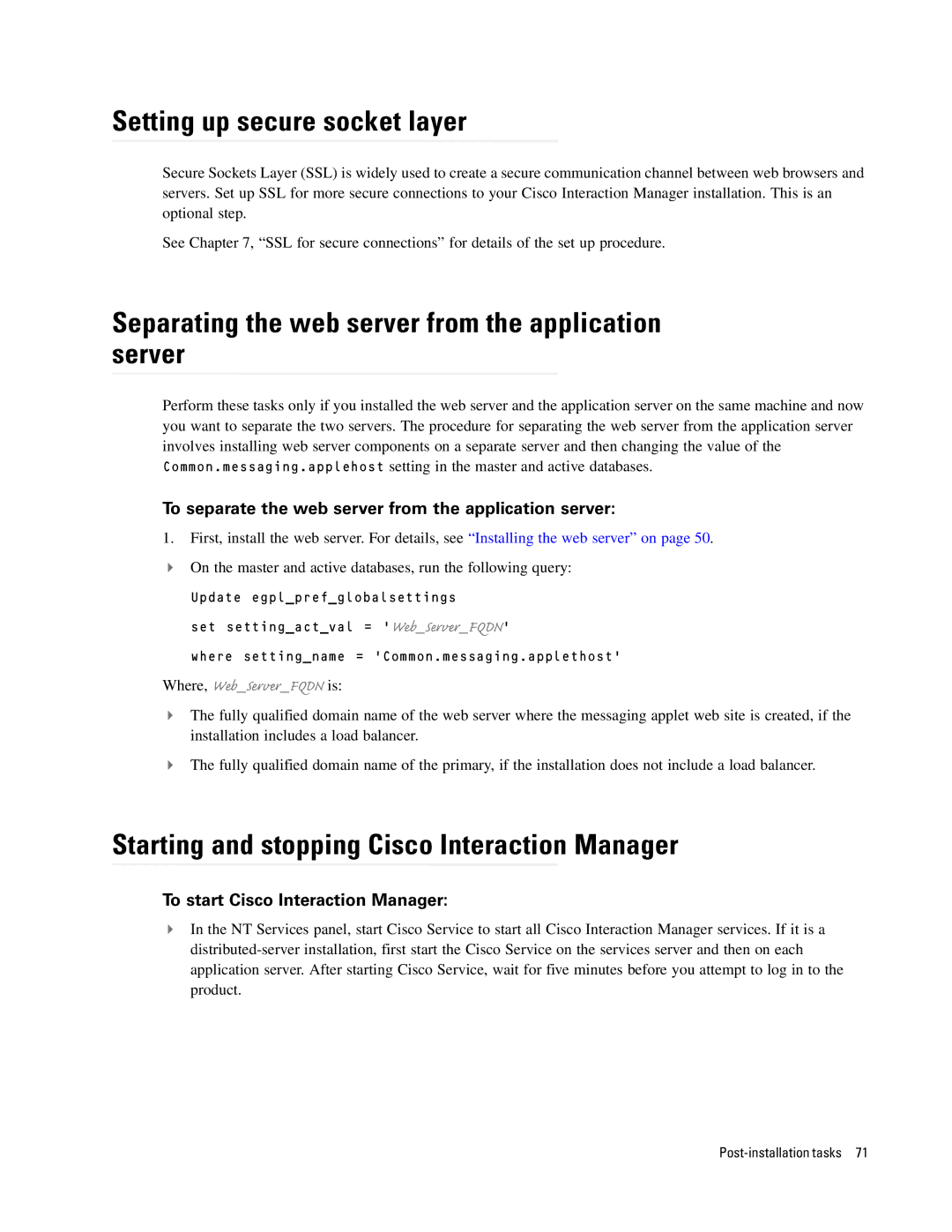
Setting up secure socket layer
Secure Sockets Layer (SSL) is widely used to create a secure communication channel between web browsers and servers. Set up SSL for more secure connections to your Cisco Interaction Manager installation. This is an optional step.
See Chapter 7, “SSL for secure connections” for details of the set up procedure.
Separating the web server from the application server
Perform these tasks only if you installed the web server and the application server on the same machine and now you want to separate the two servers. The procedure for separating the web server from the application server involves installing web server components on a separate server and then changing the value of the Common.messaging.applehost setting in the master and active databases.
To separate the web server from the application server:
1.First, install the web server. For details, see “Installing the web server” on page 50.
On the master and active databases, run the following query:
Update egpl_pref_globalsettings
set setting_act_val = ‘Web_Server_FQDN’
where setting_name = ‘Common.messaging.applethost’
Where, Web_Server_FQDN is:
The fully qualified domain name of the web server where the messaging applet web site is created, if the installation includes a load balancer.
The fully qualified domain name of the primary, if the installation does not include a load balancer.
Starting and stopping Cisco Interaction Manager
To start Cisco Interaction Manager:
In the NT Services panel, start Cisco Service to start all Cisco Interaction Manager services. If it is a
